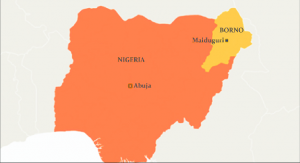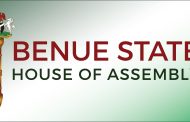By Ambassador Usman Sarki
Professor Babagana Umara Zulum, CON, FNSE, mni, presents an interesting subject for the behavioural scientist. His restlessness in getting things done should necessitate our admiration and curiosity in terms of the sequencing of activities that form the crux of his governance style.
I was recently in Biu, Borno State, to participate in a two-day retreat on leadership for newly appointed State Commissioners and other senior officials of the government. We were joined by the Governor but prior to coming to Biu, he toured several local government areas in Southern Borno, where he launched or commissioned many projects.
 Despite the tediousness of the travels, he went on a night inspection of the General Hospital and met the patients and staff immediately he arrived in Biu. In Biu also, he assessed the rate of progress of projects including schools and vocational and skills acquisition centers.
Despite the tediousness of the travels, he went on a night inspection of the General Hospital and met the patients and staff immediately he arrived in Biu. In Biu also, he assessed the rate of progress of projects including schools and vocational and skills acquisition centers.
Recounting the deeds of Governor Zulum would seem trite and dry under the compelling reason of the sheer numbers of projects being executed in the length and breadth of Borno State. Catching up with the projects of Governor Zulum is breathtaking endeavour in which effort one will be left in bewilderment and sheer perplexity.
What is inspiring and worthy of note however, are the distribution of the projects and their location in out-of the way enclaves that have not tasted the so-called dividends of democracy in all these years.
The people of Bama, Uba Askira, Chibok, Damboa, Gwoza, Biu and Shani, experienced his presence and witnessed the effects of his restlessness in the numbers of projects that were delivered to their localities. The fact that a N3 billion vocational and skills acquisition center in Shani was commissioned by Governor Zulum is a compelling news on its own. But locating such a project far from the state’s capital Maiduguri, represents the new mood in the state about inclusion, recognition, empowerment and the localisation of development.
We can count our blessings only when the narrative has an emphatic relationship to our collective or individual wellbeing. What is happening in Borno State today is of dual nature – the empowerment of communities and the upliftment of the individual from the doldrums of despair and hopeless on which verge our state was tittering for over a decade.
Governor Zulum’s intrepidity is uniquely factored on his boldness and daring that have propelled him to surmount every difficulty and overcome every obstacle that have been placed before his ambitions. With the meagre resources at his disposal, and the critical deficit in terms of the essential capacity of the state’s institutions, he has succeeded in bringing about rapid and dramatic transformation of Borno State in just four years.
Not one given to beating his own drums or blowing his own trumpet, Governor Zulum is rarely seen taking credits for his numerous achievements. Rather, he sees things from the providential angle and remains contented in the knowledge of rendering service where such idealistic traits have virtually disappeared from our discourses and consciousness.
There is still hope for Nigeria and Africa with discerning and restless leaders like Governor Zulum around. We need not go far from Borno or Nigeria for that matter, to seek for problem solving leaders. We have them right here amidst us if we sincerely care to look for them. In Governor Zulum we can affirm that we have found one who is dear to us and close to our expectations.
It is hoped that this article will spark off a debate on leadership in Nigeria and Africa and the recognition that even at the sub-national levels, leadership and the adroit exercise of power are indispensable elements in the progress of our societies. Indeed, it is at the sub-national levels that we need dynamism, daring, boldness and intrepidity as the compelling drivers of power and leadership, so that we can dispense with the sensational and often futile attachment to the chores of leadership at the national level.
Getting things done right at the states level will necessarily translate into the composite or organic factors of national development. Borno under the restless spirit of Governor Babagana Umara Zulum perhaps can be reserved as a model of action driven by purpose, or as a subject of peer review among state governors for emulation as best practice to be imbued with the sacrosanct cloak of affirmation as well as approbation.
“He Who Dares Wins!”, is the motto of the British elite Special Air Service (SAS). Boldness and daring are assets rarely deployed in government on account of the furtive nature of most political leaders, and their tentative ways of doing things. But boldness and daring are needed in times of aggravated challenges and crisis, such as we found ourselves in, in Borno State over several years now.
To be timid or tepid in the face of such enormous challenges is not an option for a leader whose sole purpose is to face circumstances as they unfold before him, and seize the moment to extricate his people from their existential difficulties.
Studying leaders who are active and restless from the behavioural perspective is therefore, a rewarding and very critical undertaking. Actions are the manifestations of intentions that also convey to the observer a sense of mission being pursued.
Addiction can also manifest itself in many behavioural traits. Most are destructive but some can be beneficial. Addiction to work is among such beneficial traits that compel attention from us onlookers, who are quick to judge our leaders from our localised comfort zones.





























2 Comments
Abdullah Musa
Many are knowledgeable on how a system can be used to a leadership most suitable to it. I am not among those many.
To show their willingness to ‘sacrifice’ for Nigeria then president Buhari and his Vice decided to voluntarily accept a pay cut of 50%. No minister emulated them, neither members of National Assembly. They were not in power to make sacrifice, they were in power to line their pockets as much as they could.
If H E Kashim Shattima was examplary as governor, certainly he did not perform as Zulum is performing now. Meaning that it was not the system that produced Zulum, Zulum produced himself.
There are governors whose tenure coincided with the first term of Zulum, but they are not in need of the accolades being heaped on Zulum, they prefer the weight of dollars in their bank accounts.
Tradition of Enlightenment produced many examplary leaders in Europe, America. I do not know which system produced Lee Kuan Yew, but I am inclined to believe he produced himself,stayed long enough to set up a political system that would outlast him.
Mao initiated the Long March, from which he set up the Communists party. Despite its structural changes, it still retains the organisational strategies of the Communist party
Dr Bukar USMAN mni
I absolutely concur with your comments on “Zulum produced himself” but not that the system is well entrenched to produce such leaders. It is our prayers that whoever that might fit in his shoes should supercede him just as he outperformed his predecessor. Once again thank you for the comments